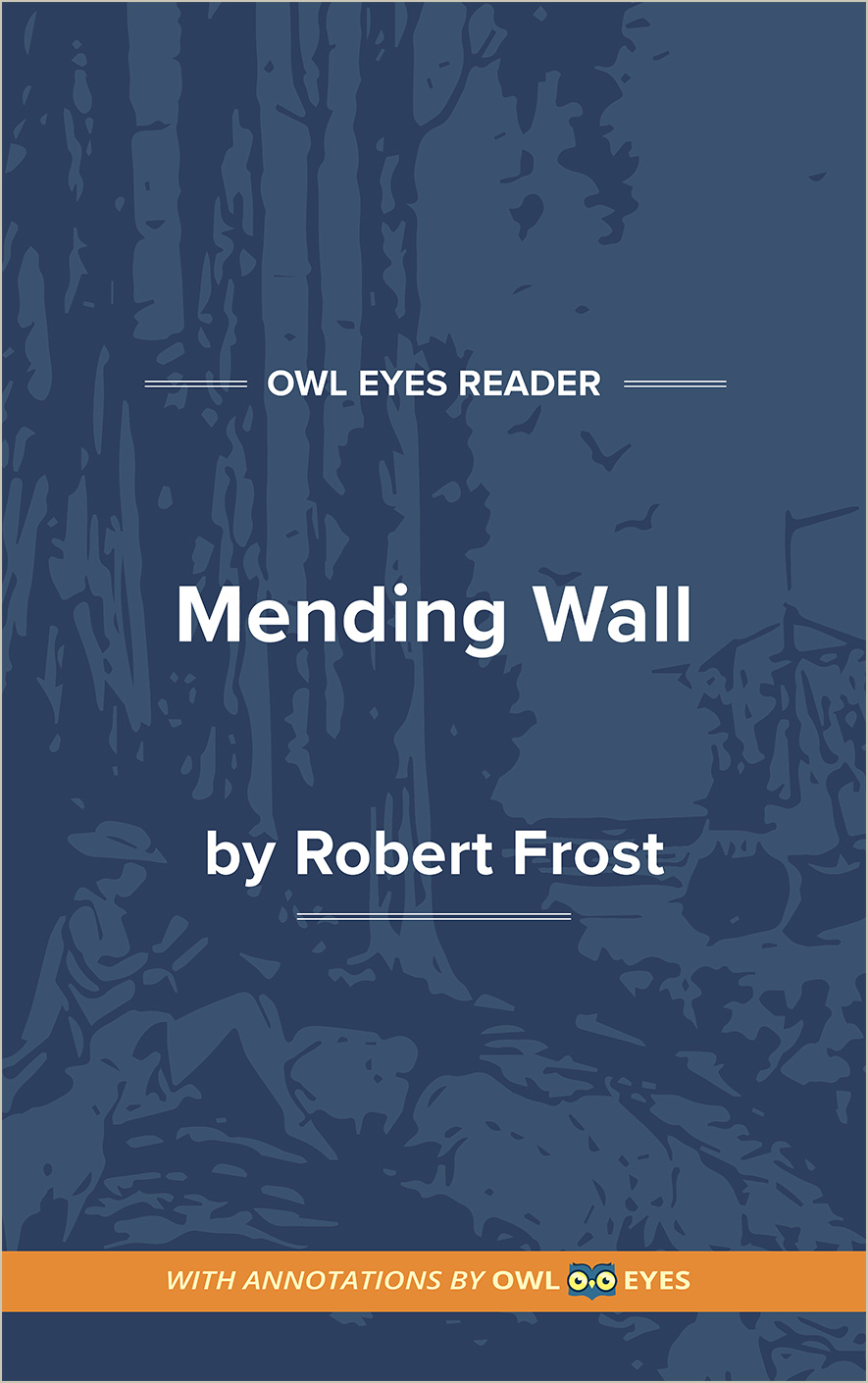Analysis Pages
Themes in Mending Wall
Themes Examples in Mending Wall:
Text of the Poem
🔒"He says again, "Good fences make good neighbours."..." See in text (Text of the Poem)
"He moves in darkness as it seems to me, Not of woods only and the shade of trees...." See in text (Text of the Poem)
"I'd ask to know What I was walling in or walling out,..." See in text (Text of the Poem)
"We keep the wall between us as we go. To each the boulders that have fallen to each...." See in text (Text of the Poem)
"But they would have the rabbit out of hiding, To please the yelping dogs...." See in text (Text of the Poem)

